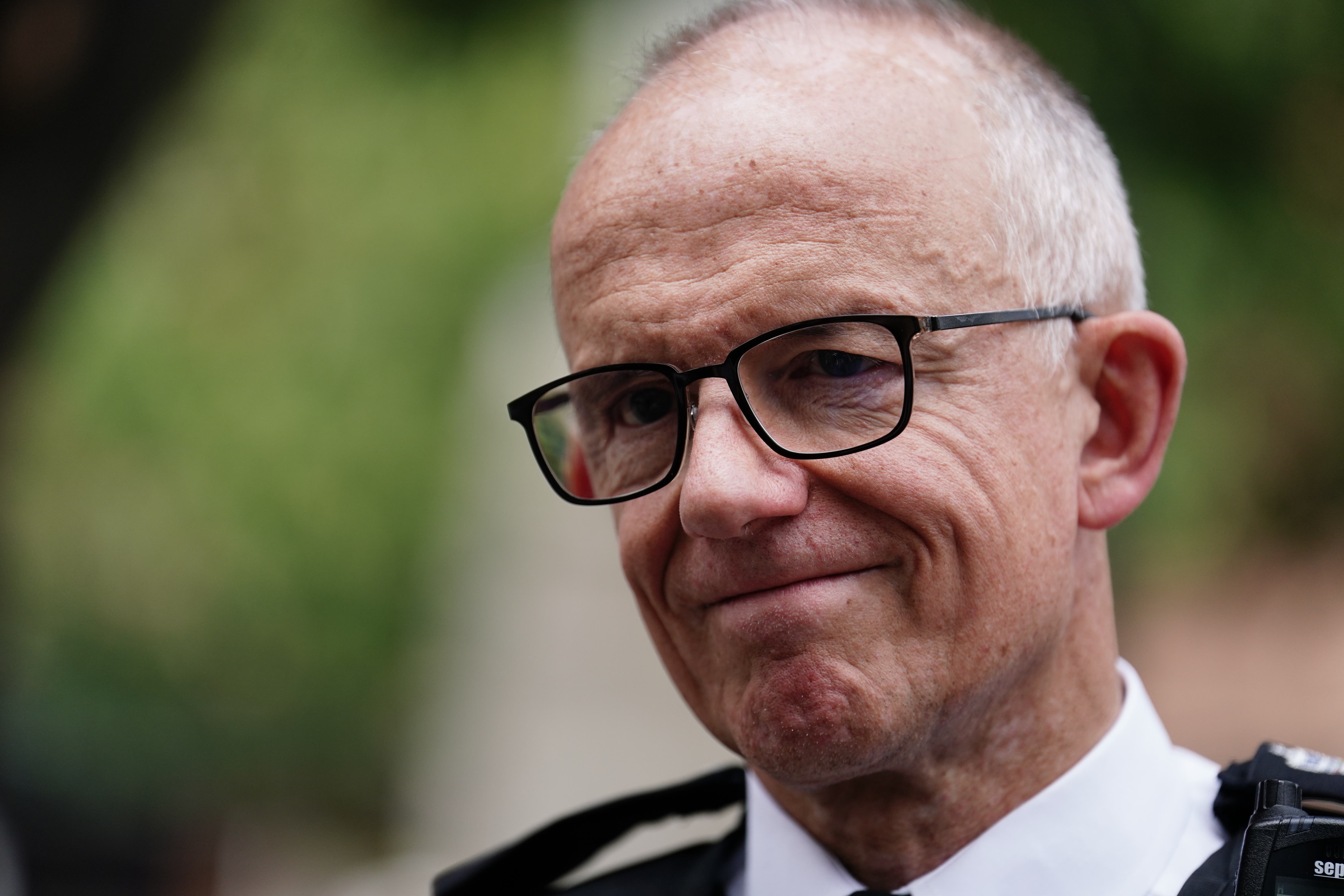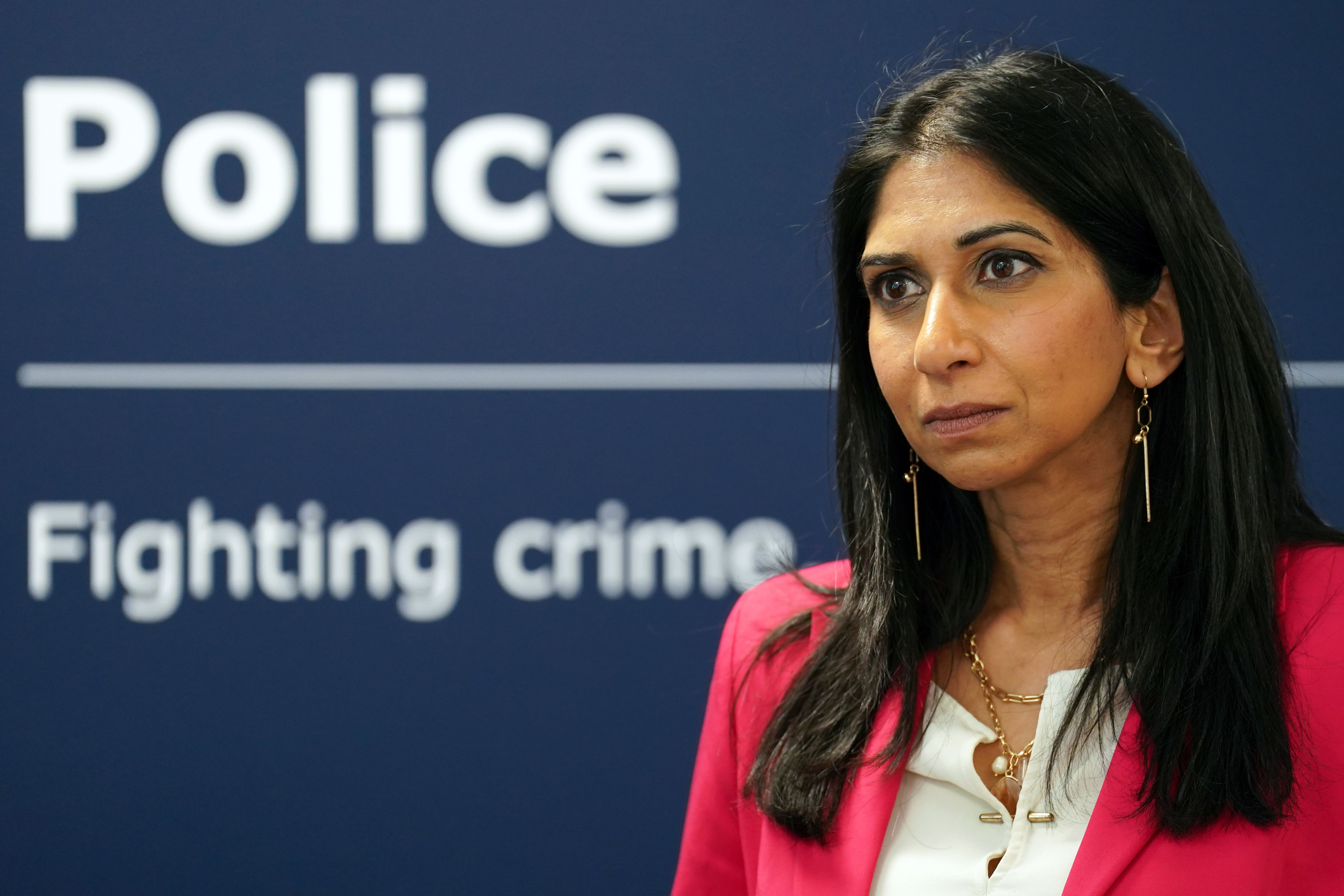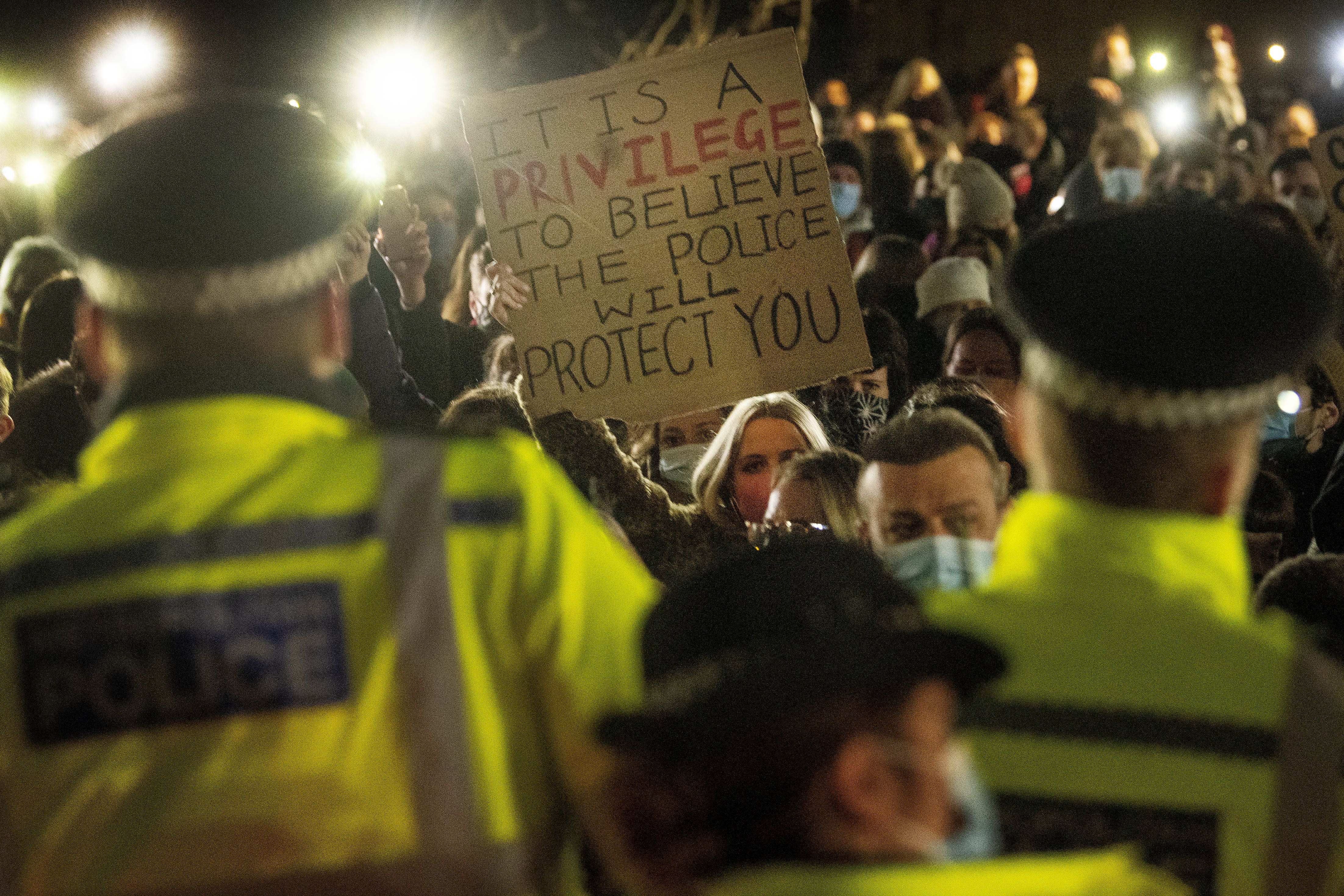At last! Suella Braverman hands police chiefs powers to sack rogue cops
Police officers will face automatic dismissal if guilty of gross misconduct, under Home Office changes demanded by forces months ago
Your support helps us to tell the story
From reproductive rights to climate change to Big Tech, The Independent is on the ground when the story is developing. Whether it's investigating the financials of Elon Musk's pro-Trump PAC or producing our latest documentary, 'The A Word', which shines a light on the American women fighting for reproductive rights, we know how important it is to parse out the facts from the messaging.
At such a critical moment in US history, we need reporters on the ground. Your donation allows us to keep sending journalists to speak to both sides of the story.
The Independent is trusted by Americans across the entire political spectrum. And unlike many other quality news outlets, we choose not to lock Americans out of our reporting and analysis with paywalls. We believe quality journalism should be available to everyone, paid for by those who can afford it.
Your support makes all the difference.Police chiefs will get greater powers to sack rogue officers under reforms announced by Home Secretary Suella Braverman – as she urged forces to “root out those who have no place wearing the uniform”.
The Home Office has revealed plans to change the law so cops found guilty of gross misconduct face automatic dismissal, while chief constables – rather than independent lawyers – will be put back in charge of misconduct hearings.
Metropolitan Police commissioner Sir Mark Rowley has been demanding greater dismissal powers following the scandals over Sarah Everard murderer Wayne Couzens and serial rapist David Carrick – both serving officers while they committed their crimes.
Police chiefs and former home secretaries Jack Straw and Alan Johnson welcomed the “sensible” moves but opposition parties said it was a “disgrace” that it had taken Ms Braverman so long to act after a review was launched back in January.
And major changes could still be six months away. The government will need to change the law to overhaul the system as soon as possible – with officials hoping new processes will be in place by next spring, it is understood.
Sir Mark called the rules around getting rid of unfit staff “crazy” after estimating that hundreds of rogue officers worked on his force – and admitting that sex offenders were among the 161 serving officers with criminal convictions.
The Scotland Yard boss said it was “nonsensical” that he does not have the power to dismiss officers, which still lies with independent lawyers known as legally qualified chairs (LQCs) on misconduct panels. “Give me the power to do it,” the commissioner pleaded back in April.
The Home Office has now promised that law changes will be made so that officers who fail vetting checks can be sacked. Independent lawyers will continue to sit on the panel to advise and maintain “rigour”, but only in a supporting role.

Chief constables and other senior officers will now chair the panels that conduct misconduct hearings, while police bosses will also have the right to challenge decisions they disagree with.
Responding to the announcement, Sir Mark said he was “grateful to the government for recognising the need for substantial change that will empower chief officers in our fight to uphold the highest standards and restore confidence in policing”.
Gavin Stephens, one of Britain’s most senior officers as chairman of the National Police Chiefs’ Council, also welcomed the “sensible” plans – saying they will put police chiefs “back in control” of being able to quickly remove corrupt staff from forces.
Ms Braverman said: “Corrupt police officers and those who behave poorly or fail vetting must be kicked out of our forces. For too long our police chiefs have not had the powers they need to root out those who have no place wearing the uniform.” The home secretary also urged forces to take “swift and robust action to sack officers who should not be serving”.
Government officials are looking at creating a list of criminal offences that would automatically amount to gross misconduct, and are also exploring the idea of expanding the rights of police and crime commissioners to challenge disciplinary decisions.

Yvette Cooper, shadow home secretary, suggested Labour would back any changes to legislation – calling the planned reforms “long overdue”.
The frontbencher said the Tories had been “too slow” and were “not going far enough to raise standards, root out abuse and restore confidence” in the police.
She added: “Labour has called for police officers under investigation for rape and domestic violence to be suspended pending investigation and for mandatory national vetting standards to end the postcode lottery across the forces.”
The head of the police watchdog has warned against making chief constables “judge and jury”. Acting director-general of the Independent Office for Police Conduct (IOPC) Tom Whiting said last week that independent lawyers brought “much-needed independence and more objectivity to the system”.
But critics of the LQC-run disciplinary system brought in back in 2016 say it’s too slow and too lenient, with under-pressure senior officers more likely to sack those found guilty of wrongdoing.
Former Labour home secretaries Alan Johnson and Jack Straw both backed the Home Office’s announced changes – but Mr Straw said he was “appalled” it had taken so long to heed calls from police chiefs.
“I support the changes very strongly,” Mr Straw told The Independent. “The final decision [on gross misconduct] needs to be made by senior officers. It’s got to lead to bad officers being dismissed more quickly.”

Tony Blair’s former home secretary added: “At the moment bad cops being allowed to play the system is undermining public trust. I’m appalled it’s taken so long. But I’m not surprised. The last home secretary who was competent was Theresa May.”
Mr Johnson, home secretary between 2009 and 2010, added: “I welcome this announcement as a crucial step in restoring public trust in the police after recent revelations about conduct caused such widespread concern.”
Mr Straw and Mr Johnson were among six former home secretaries – including David Blunkett and Tory grandees Michael Howard and Ken Baker – to write to Ms Braverman earlier this week to urge her to give the police more powers over the disciplinary process.
Liberal Democrat home affairs spokesperson Alistair Carmichael said it was “right” that the government was addressing the cracks in police vetting and misconduct procedures, “but it’s a disgrace that it’s taken so long in the first place”.
Donna Jones, chair of the Association of Police and Crime Commissioners, said she welcomed efforts to “speed up the process enabling chief constables to sack corrupt police officers quicker”.
However, John Bassett, a barrister representing the National Association of Legally Qualified Chairs, speaking in a personal capacity, said he was “disappointed” in the move – adding that he did not want to see police chiefs “marking their own homework”.





